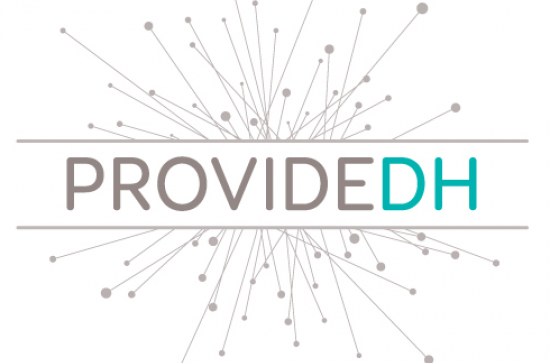
On Wednesday, 6 March 2019, the Humanities Research Institute at Maynooth University, the Trinity College Dublin Centre for Digital Humanities and the consortium members of the interdisciplinary PROgressive VIsual Decision-Making in Digital Humanities* (PROVIDEDH) project will co-host a workshop on the subject of ‘Uncertainty in Humanities Research Datasets’ to be held at Room 2.31, Iontas Building, Maynooth University.
The workshop will consist of two sessions, 11 AM to 1 PM and 2 PM-4 PM, and lunch will be provided. In the opening session, three presentations will offer different perspectives on the role of uncertainty in digital humanities research. Details of these presentations are:
Jack Kavanagh, Doctoral Candidate, Maynooth University Arts and Humanities Institute
Uncertain data and findings: exploring the digitised records of the Military Archives of Ireland
The Military Archives of Ireland since the late 2010s have released a large volume of archival information in a digitised format onto the web via the militaryarchives.ie website. The process of storing, cleaning and re-arranging this digitised data into a coherent structure has presented challenges for research and the presentation of coherent findings. Two examples of this will be explored in the discussion of uncertain data: the Irish Army Census, 1922 and a dataset of ex-British Army personnel in the National Army created from a collection that scanned as part of archival preservation and is only available via CD-ROM.
Chris Beausang, Doctoral Candidate, Maynooth University Arts and Humanities Institute
Uncertainty in quantitative literary criticism
Many schools within contemporary literary criticism focus on broader cultural trends, at the expense of the individual component parts which together compose a text’s structure. Statistical analysis meanwhile, requires formalised and unambiguous data structures which can often seem reductive to literary scholars trained in critical theory and historicisation. Finally, there is little consensus within quantitative literary criticism as to what a successful ‘result’ actually is. This presentation will consider these challenges and propose a middle ground via network analysis and community detection algorithms in a bid to move the critical discourse forward.
Jennifer Edmond, Director of the Trinity College Dublin Centre for Digital Humanities and Michelle Doran, Research Fellow, Trinity College Dublin Centre for Digital Humanities
Exploring the Place of Uncertainty in the Historical Research Process
The focus of the paper is a set of user scenarios and user stories which were created from the results of a series of informal interviews conducted at Trinity College Dublin with researchers working with the 1641 Depositions dataset (http://1641.tcd.ie/) and/or related datasets all relating to the study of the history of Early Modern Ireland. The user scenarios explore the place of uncertainty in the historical research processes that engage these and related records commonly used in coordination with each other. The aim of the paper is to identify patterns which emerge within the narratives that can provide direction for the caretakers of cultural heritage datasets to support the resolution of the tasks that were captured in the interviews, chief among which are the challenges of accessibility and interoperability.
The afternoon session will feature a series of recent works on the 1641 Depositions Datasets orientated towards the interactive exploration and collaborative annotation of the texts of the collection
VISUSAL Team Members
Interactive Visualisation of the 1641 Depositions Dataset, VISUSAL.
The session will consist of the following:
Presentation of results of the preliminary analysis of the dataset with an emphasis on describing sources of uncertainty, structural holes and other traits of interest for the PROVIDEDH project.
A showcase of spatial and dynamic network analysis prototypes. The use cases will include:
The disambiguation of persons’ names and toponyms
The visual representation of the narrative structure of a deposition
Live uncertainty tuning.
A presentation of an interface prototype for the collaborative annotation of uncertainty.
A hands-on session where attendants will be able to use the prototypes and provide valuable feedback.
The workshop will conclude with a Q&A session and a discussion as to the next steps.
Please email expressions of interest to attend the workshop to doranm1@tcd.ie by 1 March 2019.
*PROVIDEDH is a three-year project funded within the CHIST-ERA call 2016 for the topic “Visual Analytics for Decision Making under Uncertainty – VADMU.” The project aims to give humanities scholars a space to explore and assess the completeness, evolution, and interconnectedness of digital research objects, the degree of uncertainty that the models applied to the data incorporate, tolerate or introduce, and to share their perspectives and insights with the project’s broad range of stakeholders. Further information is available here.
